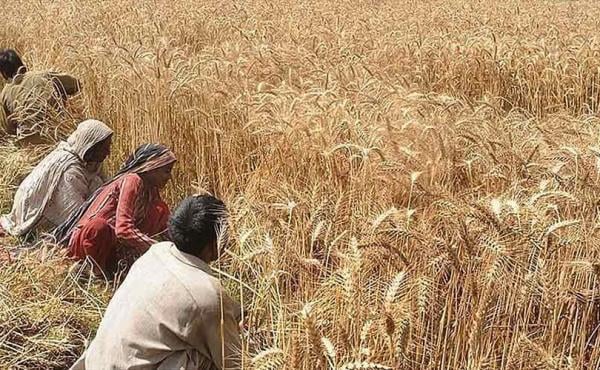ISLAMABAD – The government has approved the Wheat Policy 2025–2026, under which a large stock of wheat will be purchased at Rs 3,500 per maund to protect farmers’ interests.
According to reports, Prime Minister Muhammad Shehbaz Sharif chaired a high-level meeting on the new wheat policy. The meeting was attended by the chief ministers of Punjab, Sindh, Balochistan, and Gilgit-Baltistan, a representative of the Khyber Pakhtunkhwa CM, the Prime Minister of Azad Jammu and Kashmir, and other relevant stakeholders.
Addressing the participants, the Prime Minister said Pakistan is an agricultural economy, and wheat is a key crop, serving as both the staple food for the people and a major source of income for farmers.
He added that the government is well aware of the challenges faced by farmers and is making every possible effort for their welfare, noting that farmers are the backbone of Pakistan’s economy.
The Prime Minister stated that the federal government held detailed consultations with all stakeholders — including provincial governments, farmer associations, industrialists, and the farming community — before finalizing the National Wheat Policy 2025–26.
He explained that the policy aims to protect public interests while ensuring fair profits for farmers, and appreciated the cooperation of provincial governments in developing a consensus-based policy.
Shehbaz Sharif expressed confidence that the policy would promote agricultural growth, increase farmers’ income, and strengthen national food security for the people of Pakistan.
During the briefing, participants were informed that the federal and provincial governments will procure around 6.2 million tonnes of wheat as strategic reserves from the 2025–26 crop, at a price of Rs 3,500 per maund, aligned with international import prices.
The policy will ensure market competitiveness and guarantee fair prices for farmers. There will be no restrictions on inter-provincial movement of wheat to maintain its availability nationwide.
It was also informed that the Federal Minister for National Food Security will head a National Wheat Monitoring Committee, including representatives from all provinces. The committee will oversee implementation and coordination of policy measures, hold weekly meetings, and report directly to the Prime Minister.
The government will ensure adequate stock procurement to maintain stable reserves and protect farmers through fair pricing and sustainable supply management.














